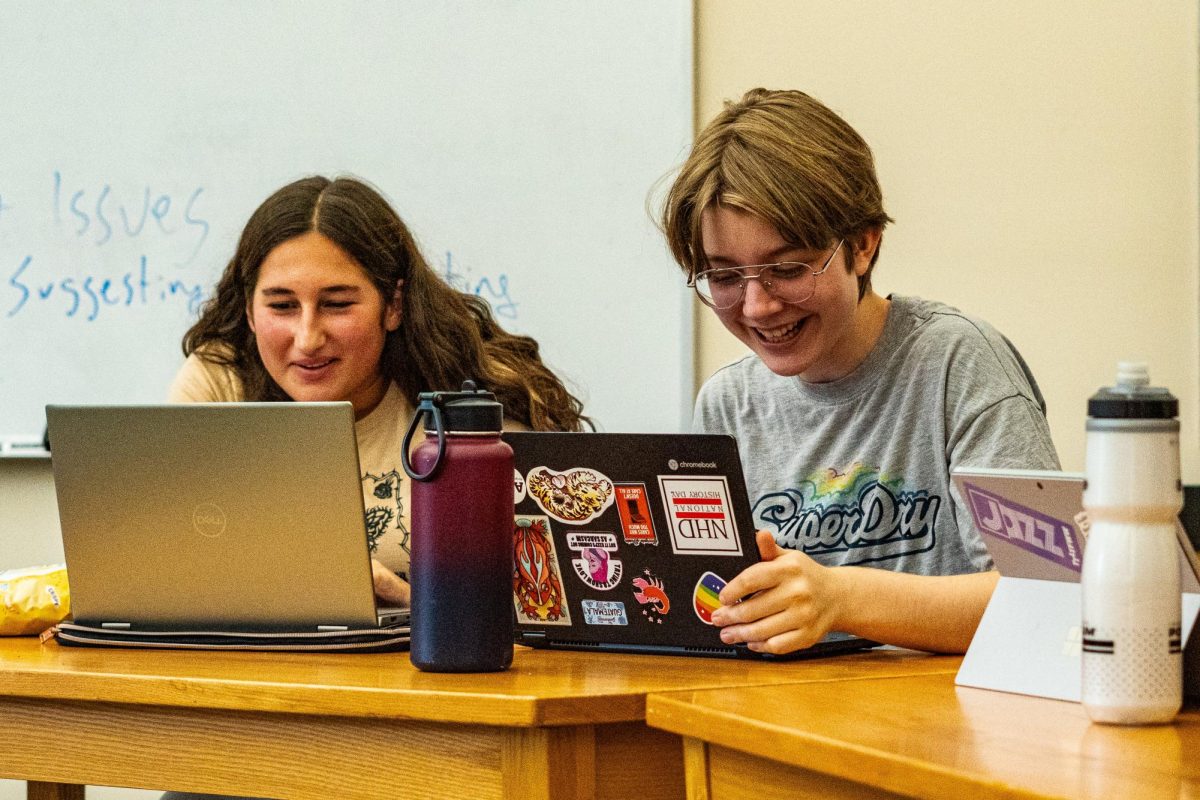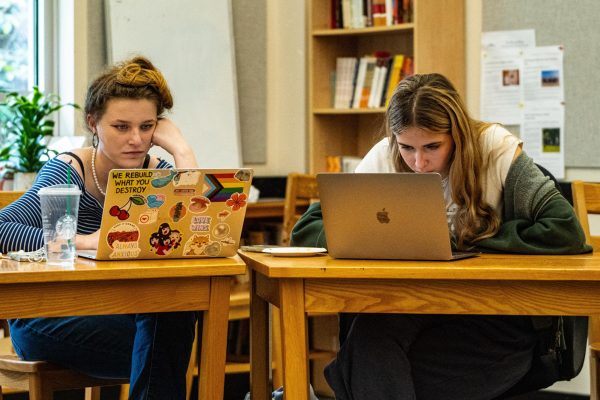
Mason Fullerton '25
Advanced Placement, or AP classes are a reality for highschool students across the country. Whether they are looking to earn credit for college, pad their high school transcript, or just pursue a subject more deeply. According to Forbes, at least 2.8 million students took at least one AP class in 2022.
The college board defines AP classes as “College-level courses and exams you can take in highschool.” AP classes allow students to further their knowledge and to test out of college courses. This might allow them to take more challenging courses, or to be exempt from general education requirements once in college. But, not all colleges accept even the highest scores for credit, which begs the question: Are APs worth it?
Compared to other institutions that allow students to take AP courses in their early years of high school, AFS restricts these advanced classes to upperclassmen. This is due to the size of AFS and their holistic approach to education, in regard to getting underclassmen situated.
AFS offers twelve AP courses, including two in the language department, and an alternation between AP English Language and AP Literature. Along with this, students are allowed to submit art portfolios through Advanced Art and Photo Four. With the regulations and limited number of classes, this impedes the number of AP classes an AFS student can take throughout their time in high school.
With the holistic values of AFS along with the college prep emphasis of our high school experience, we wonder if AP classes are really as beneficial as they seem to be to the AFS community? And how do the students and teachers at Abington Friends School feel about AP courses?
Maggie Richards ‘25 engages in the AP curriculum through her studies in AP Spanish and Biology. She said, “The school’s curriculum is already so different from other schools. We already offer a small amount and we don’t get a lot of options. I feel we might as well not have them.”
Una Davis ‘26 said, “I don’t feel like an AP class is gonna like… change my life or is that much better than an honors class or even an elective at AFS.”
However, Davis also said, “I feel like the college process, they are going to look for a certain style of writing…That’s why I’m taking this class, so I have the skills to know what people are looking for.”
AFS also offers opportunities for students to dive into interesting electives that thoroughly examine a specific area of study, as opposed to just skimming the surface of a topic. Popular elective courses include Philosophy, Film Studies, or Culture and Conversation, which can be equally if not more challenging than the AP classes.
Language Department Head and Upper School Spanish Teacher Brian Cassady, said “ My goal as a teacher is to really help a student develop, hone, and gain confidence in their oral proficiency, their ability to speak. That does play a role on the French and Spanish AP exam, and I also think learning culture is a valuable aspect of learning a second language which also plays into the AP curriculum. [However;] if the AP French and Spanish classes disappeared, I don’t think the student experience would be lessened.”
Lisa Ammarati, Head of the Science Department and AP/Honors chemistry teacher said in regards to the difference between teaching an AP class and another class, “The biggest difference is that someone else tells me what I have to teach… I say that with the caveat that if we stripped away the AP title from the course and I was just going to teach an advanced second year chemistry course, it would be mostly the same content.”
Ammarati said, “Students are really concerned about that one test on that one day…the reality is I have to tailor my teaching for a test that I’m not writing. That’s way different from my experiences in other classes.”
Ammarati said, “One of the benefits of the AP distinction is that it is a nationally recognized set of standards, and sometimes when you’re in a place that…doesn’t do a lot of standardized testing…it is nice to have some checks against the outside world. Just to show that what your students are capable of is not just impressive in your contexts, but impressive across contexts.”
Malikah Goss and Joanna Upmeyer, directors of college guidance, commented on why we have AP classes and their effect on the community.
In responding to how both tracks benefit the community Goss said, “There is a clear outline of ‘this is what you’re going to cover’, which…lessens the mental load that is required to create a new class, figure out what you’re going to read, [and] how’s it going to work. All those pieces take a lot of time. So I think having a combination is a good thing because, you want the things where [the end goal is clear], but you also want a variety. I don’t think AP classes are particularly novel in terms of the content they are covering so offering electives…offer some of that novelty for students.”
Upmeyer said, “I also like how the electives… mirror classes I took in college, where [you take] a sliver of a field, and dive deep into it, where in APUSH [AP U.S. History], it’s a huge survey course that goes over the whole 300 year history.”
However, even with the intricate and challenging course load that may come with taking electives at AFS, with the minimal amount of APs a student can take, how does this look on applications in comparison to other students at other institutions who are able to take APs into the double digits?
Upmeyer and Goss reassure students who are doubtful about the level of prestige in their application compared to the resumes of students from other schools not to worry.
Goss said, “You can’t compare a school that is very small and can only offer 12 APs total, not all of which run every year versus a big public school that can offer 50. When colleges are reading, by high school, they are looking at what your school has in order for you to take advantage of it. At AFS, a rigorous curriculum [includes] 1 or 2 APs, 3 to 4 is very rigorous, and anything over five is the most rigorous. [Colleges] are looking at the context.”
In regards to concerns of students who haven’t taken any APs, Upmeyer said, “100% of the kids that want to go to college, go to college from our office.”
Upmeyer also brings perspective about how admission offices view AFS students, saying, “AFS students are read and reviewed by admissions offices very favorably because of the quality of writing and critical thinking that students are doing.”
When wrapped up in the college process and how to present the best image of ourselves to these sometimes selective institutions, we often forget our own values and what we want out of our college experience.
In regards to this, Goss said, “If what you want is to go to a highly respected institution that cares very much about how many APs have you taken, is that the same thing you value? And if it’s not, that’s probably not a great place for you to be anyway…”
AFS offers an array of options for students to succeed from enriching electives to standardized college prep classes. AFS gives us opportunities to explore our interests and expand our curiosities. We can engage in multiple disciplines of study that support our development in school that prepares us for college and beyond.

The people of AFS have many opinions on the necessity of AP classes in our curriculum. Many people can clearly point to benefits, but are they unique to this system or would they still be available to students without the title of Advanced Placement or the half-day-long tests? Are AP classes really enriching our curriculum, or would we be in the same or even a better position if we were to shed the title and offer a class that taught similar material in a less exam-forward way?